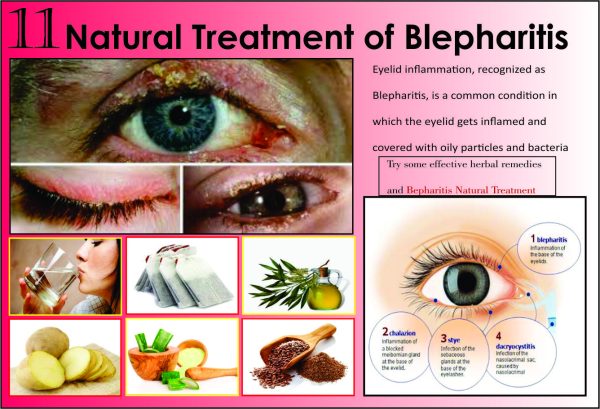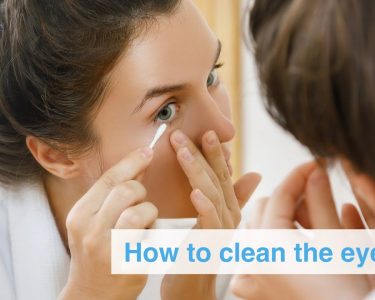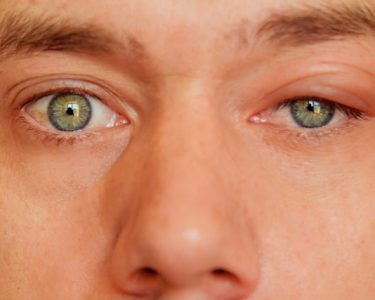Blepharitis and its Symptoms
Blepharitis is a common eye disorder that affects the eyelids. It can affect both adults and children, but it is more frequent in people with certain health conditions like diabetes, rosacea, or an overactive immune system. It is usually caused by bacteria, allergies, or an autoimmune condition. Symptoms of blepharitis include burning and itchy eyes, a gritty feeling in the eyes, redness of the eyelids, swollen eyelids, flaking skin around the eyes, crusting of the eyelashes, and vision problems. If left untreated blepharitis can cause complications such as dry eye syndrome and corneal ulcers. In most cases however blepharitis can be managed through home remedies which can help reduce symptoms quickly and effectively. Here are some easy home remedies for eye infection blepharitis:
Causes of Blepharitis and its Complications
Blepharitis is an eye condition that affects the rims of the eyelid, causing discomfort and irritation. Causes of blepharitis can include bacterial infections, skin conditions such as dandruff or seborrheic dermatitis, mites on the lashes, allergies, eye strain, or general skin conditions. Complications associated with blepharitis can range from mild to severe. The most common complications are burning and itching around the eyes, crusting of the lid margin, dryness of the eyes, light sensitivity, pain in or around the eyes, and vision disturbances. In some cases, it has been observed that blepharitis can cause a secondary infection such as conjunctivitis. It is important to seek medical attention if any signs of infection are present as it may lead to more serious complications such as vision loss.
Blepharitis is an inflammation of the eyelids that can cause redness, itching, and other uncomfortable symptoms. Effective treatment usually requires a combination of good hygiene and home remedies such as cleaning the eyelids, warm compresses, tea bags, turmeric, coconut oil, and aloe vera. All of these natural remedies can be used in the comfort of your own home to help relieve blepharitis symptoms.
Cleaning the Eyelids
Proper eyelid hygiene is essential for treating blepharitis and preventing recurrence. Start by washing your hands with soap and water to avoid spreading infection. Then use a clean washcloth soaked in warm water to gently massage your eyelids for 2-3 minutes. Afterwards, rinse your eyes with plain water or an over-the-counter eyewash formulated for blepharitis. Repeat this process twice daily or as recommended by your doctor.
Warm Compresses
Warm compresses can help reduce inflammation and unclog blocked meibomian glands that are often present with blepharitis. Soak a clean cloth in warm water then apply it to closed eyes for about 10 minutes at a time several times a day. You may also use a store-bought moist heat eye mask if preferred.
Tea Bags
Tea bags contain tannic acid which has natural anti-inflammatory properties that can soothe the delicate skin around the eyes. Soak two green tea bags in hot water for 3-5 minutes then remove them from the liquid and allow them to cool until they are comfortable to put on your eyes. Place one tea bag on each eye and leave them on for 10 minutes before taking them off and rinsing your eyes with lukewarm water.
Turmeric
Turmeric is another potent anti-inflammatory herb that can be used to treat blepharitis naturally at home. Mix 1 teaspoon of turmeric powder with ¼ cup of warm milk or sweet almond oil until it forms a paste then apply it around the eyes before going to bed at night and rinse off in the morning with lukewarm water. Do this every night for several weeks or as long as necessary until signs of improvement are seen.
Coconut Oil
Coconut oil contains natural antifungal properties that can help reduce inflammation associated with blepharitis while also helping to keep eyelids moisturized throughout the day . Apply organic coconut oil onto closed eyes using gentle circular motions 2-4 times daily or as needed until symptoms subside .
Aloe Vera
Aloe vera is known for its soothing properties which makes it ideal for treating inflamed skin conditions such as blepharitis . Simply extract gel from fresh aloe leaves then apply it onto closed eyelids each evening before bedtime . Leave it on overnight then rinse off in the morning using lukewarm water . By following these simple home remedies regularly , you should start seeing improvements within just a few weeks . If you experience any adverse reactions , stop using these treatments immediately and seek advice from your doctor right away .
Herbal Treatment for Blepharitis – Chamomile, Calendula & Goldenseal
Blepharitis is a common eye infection that causes redness, itching, and burning around the eyelids. Treating blepharitis typically involves cleaning the eyelids to remove bacteria and other irritants. A good way to do this is to use Herbal Treatment for Blepharitis such as chamomile, calendula, and goldenseal. Chamomile is a healing herb with anti-inflammatory and antiseptic properties. It can be used topically in the form of compresses or ointments for relief of inflammation and irritation of the eyelids. Chamomile tea bags can also be soaked in warm water and then placed on the eyes as a compress to reduce inflammation and irritation.
Calendula is an herb known for its strong anti-inflammatory and antiseptic properties. It can be used topically in the form of lotions, salves, or compresses for relief from redness, swelling, itching, burning sensations, and any other symptoms caused by blepharitis. Goldenseal is another herb with powerful anti-inflammatory properties that can help soothe irritated eyelids caused by blepharitis. Goldenseal powder can be mixed with water to make a paste which can then be applied directly to the affected area several times a day until the symptoms improve. These herbal treatments are easy home remedies that can provide much-needed relief for those suffering from an eye infection like blepharitis.
Over-the-Counter Eye Drops for Blepharitis Treatment
Blepharitis is a common eye infection which can cause burning, dryness, and inflammation of the eyelids. Fortunately, there are a variety of over-the-counter eye drops that are available to treat this condition. The most important aspect of treating blepharitis is to keep your eyes clean and free from bacteria and other irritants. A good way to do this is by using mild soap and warm water or baby shampoo when cleaning the affected area.
This will help to remove any debris or crusting around the eyelids. Additionally, you may wish to use a warm compress on the eyelid to reduce swelling and discomfort. Once your eyes have been cleaned it is important to use over-the-counter eye drops to help keep the area lubricated and reduce inflammation. Commonly used eye drops contain ingredients such as boric acid, sodium chloride, or hypromellose which can help reduce itching and burning caused by blepharitis. If you have allergies or sensitivities it may be best to avoid these types of medication completely as they could further aggravate your symptoms.
When purchasing over-the-counter eye drops for blepharitis treatment it is important to read the label carefully as some products may contain preservatives that could further irritate your eyes. Additionally, if you develop any unpleasant side effects such as stinging, redness, increased sensitivity or blurred vision then it would be best to discontinue use immediately and consult with your doctor or pharmacist about alternative Eye Treatment for Blepharitis options. Blepharitis can be an uncomfortable condition but with proper care and treatment it can be managed effectively at home.
When to Seek Medical Attention for Eye Infection Blepharitis
Though home remedies may be successful in treating the symptoms of blepharitis, it is important to seek medical attention when the infection persists or does not respond to home treatments. Symptoms that may indicate an underlying medical condition, such as styes, eye pain, sensitivity to light, inflammation of the eyelids, and rapid blinks may all require medical attention. If a person has experienced a change in vision or notices any new growths on their eyes or eyelids, they should seek medical attention right away.




